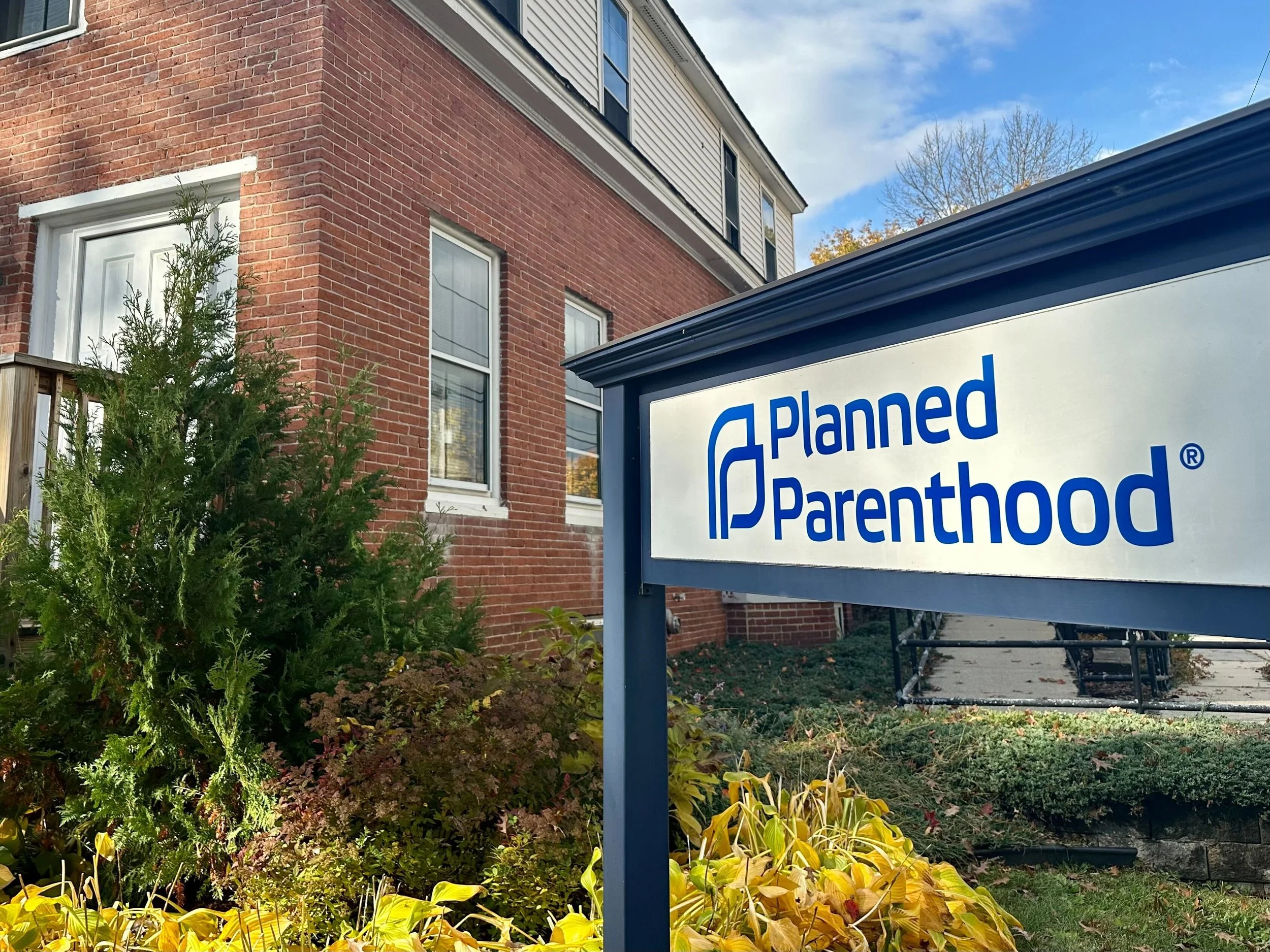The demand is fueled by uncertainties about abortion access and insurance coverage for contraceptives, experts say.
By: Kelly Burch, Granite State News Collaborative
Health clinics around New Hampshire have been fielding increased demand for long-acting and permanent birth control options since the presidential election, amid fears that the new administration might curtail access to or insurance coverage of contraception.
At Planned Parenthood of Northern New England, which has clinics in Derry, Exeter, Keene and Manchester, appointment bookings for long-acting reversible contraceptives — which include the birth control implant and intrauterine devices known as IUDs — were up as much as 82 percent in the week after the election (compared to the week before), while the number of vasectomy consultations increased slightly.
Other health centers — including Lovering Health Center in Greenland, Equality Health Center in Concord and Lamprey Health Care, which has locations in Nashua, Newmarket and Raymond — have also seen an increase in calls about birth control options.
“People feel very strongly that the time is now,” said Sandi Denoncour, executive director of Lovering Health Center. “There’s so much uncertainty and anxiety about what’s to come, they’re choosing a long-acting or permanent option.”
President-elect Trump has said he will not ban birth control and would veto a national ban on abortion. However, the nonprofit Center for Reproductive Rights has reported that a second Trump presidency poses “grave threats to reproductive freedoms.” Project 2025, which has been closely associated with Trump, calls for changes that include ending mandatory insurance coverage for contraception and access to medical abortion. There’s also anxiety that certain birth control methods and abortion could be banned or strictly limited, whether at the state or federal level, Denoncour said.
The result is an urgency for people to get access to long-acting birth control options before any changes can take place, Denoncour said.
“It’s all very acute to people,” she said. “People are very worried. The anxiety is palpable.”
Lamprey Health Center hasn’t had a substantial increase in new appointments for birth control, said CEO Sue Durbin. However, providers have noticed more calls asking about replacing long-acting birth control before it’s medically necessary. IUDs can last for three to 10 years, depending on the brand. Replacing an IUD early essentially restarts the clock on that time period, ensuring a highly effective birth control option for years to come.
For some patients, that can provide peace of mind.
“There really is a lot of anxiety, and a lot of uncertainties in the larger landscape,” Durbin said.
Ultimately, whether it’s possible to replace a contraceptive early comes down to an individual’s medical history and what their insurance will cover.
“It would be making a decision on their medical situation, rather than the political situation,” Durbin said.
Lamprey Health Center began offering vasectomies a little over a year ago, and has seen a steady increase in demand for that permanent form of birth control, Durbin noted. Although the numbers increased this fall, it’s “hard to say whether or not that’s related to the political environment right now.”
At Equality Health Center in Concord, there’s been “an increase in panic of our patients looking to make plans for their reproductive health,” said Executive Director Jinelle Hall. It’s something she also thinks about for her two daughters, who are 19 and 23.
“I want to make sure they have the necessary means whether they want to become pregnant or not,” she said. “It’s not just my professional life; it’s my personal life.”
Equality Health Center also reports more worried phone calls from patients receiving gender-affirming care, a trend also seen at Lovering Health Center. There’s a limit to what the health center can do for those patients, Hall said. For example, “we can’t extend scripts” beyond what’s medically allowed.
Instead, workers at Equality are reminding patients that they can still receive all their typical health care, at least for the time being.
“We’re making sure our patients understand we’re here for them and we understand they’re anxious,” while also providing “some solid information and advice that it’s business as usual until anything changes,” Hall said.
‘There’s no guarantee’
Delivering that message can be tricky, Denoncour said.
The exterior of Planned Parenthood's clinic in Keene. Appointment bookings for long-acting reversible contraceptives were up as much as 82 percent in the week after the election, while the number of vasectomy consultations increased slightly at the organization’s four facilities in the state. (Casey McDermott/NH Public Radio)
“One of the challenges of messaging over the past few years, when the [24-week] abortion ban passed in New Hampshire and Roe fell, [is telling] folks, ‘services are still available, but we should be very worried,’” she said. “Services are not protected. There’s no guarantee that these couldn’t change based on federal or state actions.”
Internally, health centers are preparing for possible changes in access to abortion and contraceptives, providers said. Hall also urges patients to channel anxieties into speaking up about the importance of reproductive health care.
"Your voice has to be heard,” she said. “We cannot sit back. Continue to have conversations with folks who make these decisions. We vote these folks in.”
This year, Equality Health Center is celebrating 50 years of providing health care in Concord, and Hall doesn’t see that changing anytime soon.
“We’ve gone through some tough times, and we’re about to again,” she said. “We’ll come out on the other side. It’s just going to have some challenges.”
That determination to carry on is shared by other health clinics, including Lovering Health Center.
"The anxiety we’re hearing from patients, we absolutely feel it,” Denoncour said. "But we can’t act like we’re under threat every day. We’re stubbornly optimistic.”
These articles are being shared by partners in the Granite State News Collaborative. For more information, visit collaborativenh.org.

